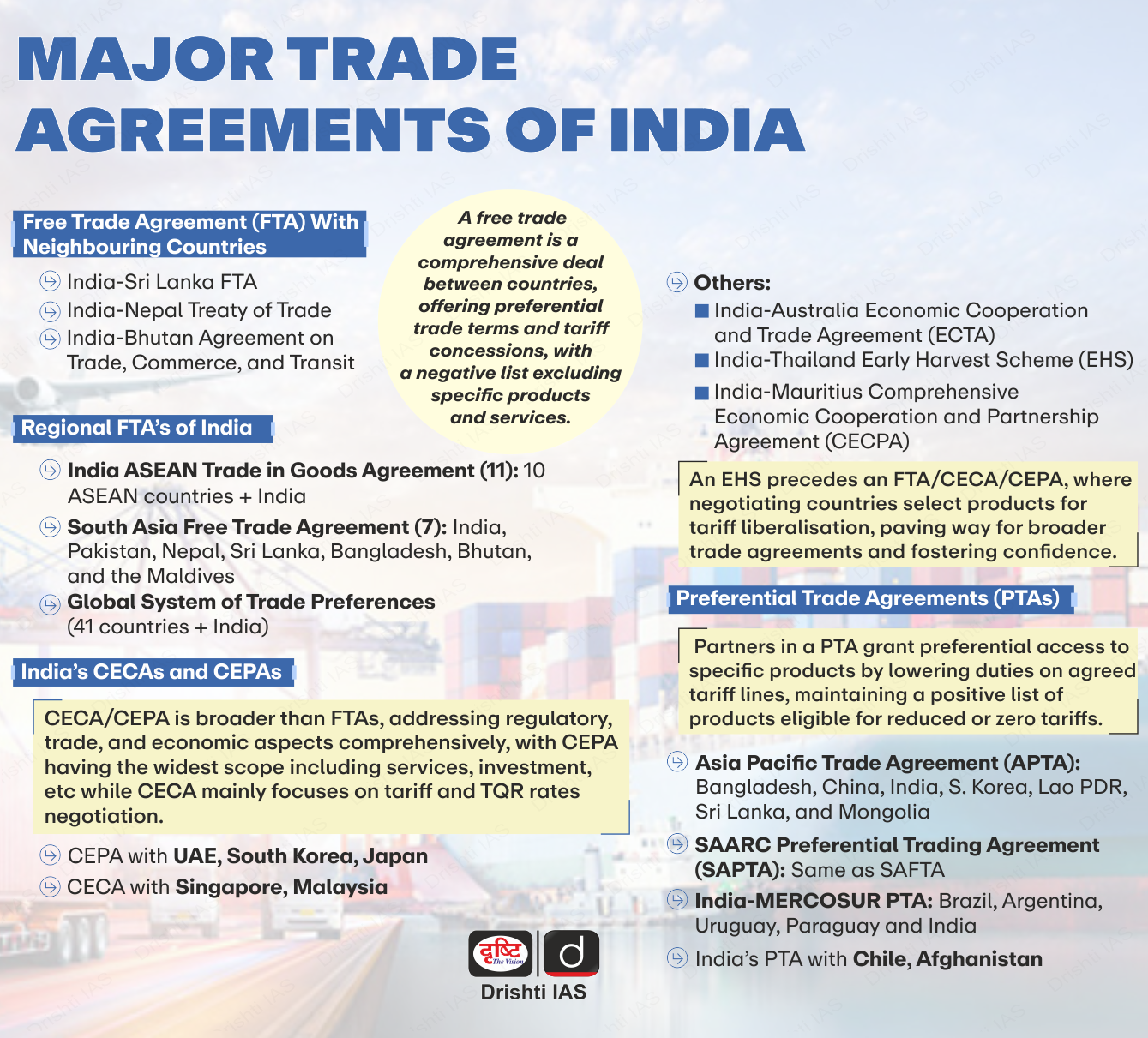China to Retain ‘Developing Status’ but Forgo WTO Benefits | 29 Sep 2025
China announced it will no longer seek Special and Differential Treatment (SDT) in future World Trade Organisation (WTO) agreements, though it will retain its developing country status.
- China, now the world’s second-largest economy at USD 19 trillion, has grown from USD 1.3 trillion since joining the WTO in 2001.
WTO Developing Nation Status
- Self-Declaration: WTO lacks an official definition of developing or developed nations; members self-designate their status, though others can challenge if benefits are misused.
- Self-declared developing country status at the WTO does not guarantee benefits under unilateral schemes like Generalized System of Preferences (GSP).
- China’s decision to forgo SDT is voluntary, not imposed.
- It will retain its developing country status and past rights, while projecting itself as a responsible major developing country ready to accept stricter trade obligations to reinforce multilateralism.
- Significance of the Status: SDT provides developing and least-developed countries with greater flexibility in meeting obligations, such as longer timeframes, preferential treatment, technical assistance, and exemptions.
- It is designed to promote equity in trade rules by acknowledging the varying capacities of member countries.
- Implications: This move breaks a major negotiating logjam by sidestepping the contentious developed vs. developing debate, potentially unlocking progress on new trade agreements.
- This development allows India to advocate WTO reforms distinguishing large middle‑income from low‑income developing nations, and to push for clear, fair criteria for SDT to end “self‑designation” ambiguities.
|
Read More: Developing Country Tag to China: WTO |

